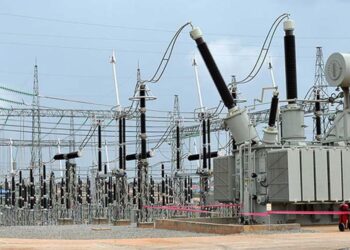Nigeria’s Gross Domestic Product (GDP) grew by 1.94% in real terms, in the second quarter (Q2) of 2019, down from 2.10% growth recorded in the first quarter (Q1). This means the economy declined by 0.16% points in the quarter.
According to the data just released by the National Bureau of Statistics (NBS), the Nigerian economy grew by 1.94% in Q2 2019, when compared to the corresponding growth of 1.50% in Q2 2018. This indicates an increase of 0.44% points between Q2 2018 and Q2 2019 (year on year).
Growth overview: A quick breakdown shows that the Oil sector grew by 5.15% from contraction in the previous quarter, while Non-oil GDP slowed down by 1.64% in Q2 2019.
- According to the report, Nigeria’s aggregate GDP stood at N34.9 trillion in nominal terms, an increase of 13.83% over the performance posted in Q2 2018.
- In Q2 2019, a total of 15 activities grew faster in Q2 2019 relative to last year, while 13 activities had higher growth rates relative to the preceding quarter.
- For half-year 2019, real growth in the first half of 2019 stood at 2.02%, higher than the 1.69% which was obtainable in 2018.
The Oil Sector: In Q2 2019, the oil sector of the Nigerian economy posted a strong performance with a 9.10% point increase relative to the rate recorded in the corresponding quarter of 2018.
- Notably, the oil sector grew by 5.15% in the second quarter of 2019, as against the dip of -1.46% suffered in Q1 2019. This indicates an increase of 6.61% points in Nigeria’s oil sector.
- In terms of contribution, the oil sector contributed 8.82% to total real GDP in Q2 2019, up from 8.55% recorded in the corresponding quarter.
- However, the sector’s contribution to GDP went down when compared to Q1 2019.

[READ: Banks, hotels, manufacturers brace up for 31% rise in electricity tariffs]
The Non-Oil Sector: The Bureau’s report shows that Nigeria’s non-oil sector contracted in Q2 2019. The non-oil sector grew by 1.64% in real terms during the quarter under review. This was –0.40% points lower than the 2.05% recorded in the same quarter of 2018, and -0.83% point lower than the first quarter of 2019.
- During the quarter, the growth in the non-oil sector was driven mainly by sectors which include Information and Communication, Mining and Quarrying, Agriculture, Transportation and Storage, as well as Other Services.
- In terms of contributions to GDP, the non-Oil sector remains the biggest contributor to GDP.
- The sector contributed 91.18% to the nation’s GDP, lower than the share recorded in the second quarter of 2018 (91.45%), but higher than the first quarter of 2019 (90.78%).
Key Sectors’ performance: The growth of the Nigerian agricultural sector slowed down in the Q2 2019 when compared to Q1. Specifically, the sector grew by 1.79%, down from 3.17% posted in the previous quarter. This means the sector declined by –1.38% points.
- On the other hand, the agricultural sector’s contribution to GDP improved to 22.82%. Although this is lower than the contribution in the second quarter of 2018 (22.8%), it is higher than the first quarter of 2019 which stood at 21.89%.
- The manufacturing sector also contracted by –0.13% (year on year), lower than the corresponding quarter of 2018 and Q1 2019. The growth rate of the sector, on a quarter-on-quarter basis, stood at –4.41%.
- The manufacturing sector’s contribution to real GDP in Q2 2019 was 9.10%, which is lower than 9.29% recorded in Q2 2018 and 9.79% recorded in the first quarter of 2019.
- Overall, the nation’s industrial sector grew significantly at 2.01% in Q2 2019. This is the biggest growth the sector posted in six quarters.
- Meanwhile, the service sector also contracted, the sector grew at 1.94%, lower than 2.06% posted in Q1 2019, but higher than 1.46% growth recorded in Q2 2018.
The Key takeaways: GDP is Nigeria’s biggest economic data, and it measures the monetary value of everything produced in the country. It depicts the nation’s total economic activity. A decline in GDP means major economic activities are slow or sluggish, which may be a result of several factors.
- For the latest data, the economic growth of 1.94% shows an improved performance when compared to the second quarter of 2018 (1.50%). According to NBS, the slight improvement in GDP was likely aided by stability in oil output as well as the successful political transition.
- However, the 1.94% GDP suggests the economy behaved sluggishly within the quarter. Expectations were high for the economy to post a better growth performance from the 2.10% recorded in Q1 2019.
- Another downside is the agricultural sector. In the previous quarter, the agricultural sector posted the biggest growth across the major sectors. However, the sector dipped in Q2, slowest in 4 quarters.
- Meanwhile, the industrial sector posted some positives as it posted the biggest growth for the past six quarters.
[READ FURTHER: Prices of rice, frozen chicken, tomatoes and others jump as border closure bites hard]



















